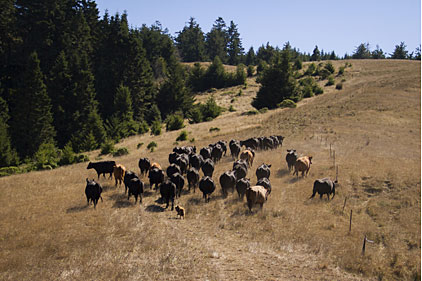This year’s 2014 International Livestock Congress annual meeting in Denver centered on the theme, “The Cattle Industry at a Crossroads? How do we adapt to change?”
Speakers, moderators and panel members included Dr. Bo Regan, Dr. Russell Cross, Dr. Gary Smith, Dr. Bill Mies, Phil Seng, Dr. Kim Stackhouse, Robin Murphy, Leann Saunders, David Waggoner, Lilly Edwards-Callaway, Dr. Gary Brester and many other industry and educational leaders.
Important topics related to the future of the beef industry were discussed, including a look at the last 15 years, exports, succession planning, animal well-being, changing consumer demands, transparency, improving beef quality, use of technology and sustainability.
When I was growing up on a farm in Brighton, Colo., I had the privilege of knowing and working with many neighboring family farms. Some produced beef, some dairy and others vegetables and grains.
Twenty years later, most of these family-owned farms and ranches are gone. Back then, we didn’t use the word “sustainable.” When a farm or ranch failed to pay the bills and had to close, we said, “it didn’t work anymore” or “times have changed.”
Today “sustainable” is a popular word with varying definitions, but I go back to my farm roots to define the word as, “can we continue doing this in the way we have been doing it?”
And the answer is, no.
We have to change. We must plan ahead and consider things such as natural resources, maximizing production and reducing waste, animal wellness, food safety, community and workplace issues.
Consumer need and demands have changed. The beef market has changed. Production challenges and practices have changed. Technologies have changed and animal welfare concerns have changed. A lot has changed. More changes are ahead of us if we want to be “sustainable.”
The highlight of the conference for me was the chance to interview and talk candidly with the young agriculture students. There were many ag students from local universities and 12 students representing 11 universities in Australia, Argentina, Brazil, Canada, India and the United States.
These 12 were winners of the highly coveted International Stockmen’s Educational Foundation Travel Fellowship to the 2014 International Livestock Congress. The students toured JBS and a feedlot, had special access to industry leaders, and were allowed to participate in all sessions and discussions. This mentoring and succession planning effort by the ILC should be applauded and modeled by others in our industry.
I asked many of the students about sustainability. What does this word mean? Is it possible? What changes will we have to make to be sustainable? One common answer was, we change or die as an industry. Another was, yes, we can sustain our commitment to provide high-quality, safe beef to the world, but we will have to change to meet the increasing challenges in production and the changes in the international marketplace and consumer expectations.
I left the conference encouraged by the comments, but I was more impressed with the character and commitment of the students to embrace the challenges ahead and lead the future of the industry. My only lament was in asking myself, “Why are there not more young students here?” We should have sponsors for 50 to 100 students in the years to follow if we hope to prepare our next generation of leaders.
The key to sustainability is directly related to the importance we place on teaching students what current leaders know and preparing them now to handle the challenges of tomorrow. This wisdom will be lost otherwise.
Sustainability then is up to the current leadership in all aspects of our industry — the production side, the packers, feeders and processors, the industry associations and those influencing lawmakers, agencies and regulators. Our chance is now. Our window is small. Let’s all take a lesson from the ILC and make a commitment to our young future leaders.
What will you do this year in your company, association, agency, farm/ranch, feedlot or processing plant to prepare the next set of leaders for 2020 and beyond? Only with such collaborative industry effort and commitment will we be “sustained.” Hope to see you all next January at the ILC in Denver with a few future “sustainers” of the beef industry at your side.



Report Abusive Comment